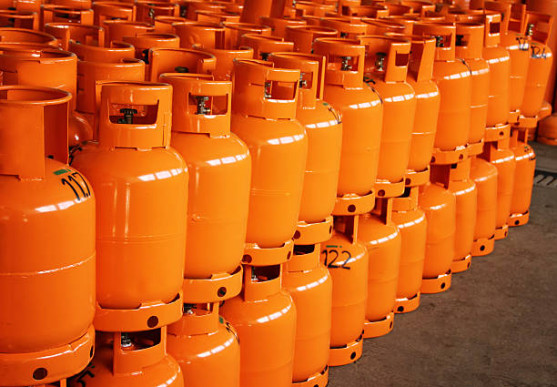- 4645
- 0
Sharing Ideas and Updates on LPG in Nigeria and related information to enable effective collaboration within the LPG Value Chain
COOKING GAS SCARCITY IN NIGERIA - TRUE OR FALSE

According to The Punch News, the President of the Nigerian Association of Liquefied Petroleum Gas Marketers, Oladapo Olatunbosun, has revealed that there is a growing scarcity of cooking gas (Liquefied Petroleum Gas) in Lagos. This scarcity has also extended to several other states, including Kano, Kaduna, Sokoto, Katsina, and Delta.
Residents in these affected areas are now paying as much as N1,400 per kilogram when refilling their gas canisters, indicating a significant price surge. Although no official reason has been provided for the scarcity, Olatunbosun warned against patronizing those without gas plants, as they tend to add their profit, exacerbating the problem.
Furthermore, he emphasized that there is no justifiable reason for the current surge in refill prices. Stakeholders along the supply chain have attributed the increase to fluctuations in the foreign exchange rate. Olatunbosun warned that if the Federal Government does not intervene and regulate the activities of terminal owners, the prices for 12.5kg refills could reach as high as N18,000 by December 2023.
In Abuja, the federal capital territory (FCT), cooking gas is still available, though residents are paying a premium, with prices as high as N1,200 per kilogram. However, in the previously mentioned states, cooking gas has become a luxury, with residents forced to turn to the black market for refills.
The cost and availability of cooking gas in Nigeria are influenced by various factors. The price of LPG is closely tied to the exchange rate between the Naira and the Dollar, with a weakening Naira leading to higher LPG prices. Nigeria's LPG market relies on a combination of local production and imports, with domestic production accounting for a significant share and imports filling the supply gap.
Rising demand for LPG following the removal of fuel subsidies in 2023 has driven up prices, while the global impact of the Russia-Ukraine conflict has disrupted supply chains and raised costs. Seasonal changes also play a role in pricing, and the size of transportation vessels and land-based trucks can impact LPG prices per metric ton, highlighting economies of scale in logistics.
LPG in Nigeria has recently conducted a series of online surveys to gain a firsthand understanding of the LPG situation across the nation. It is worth noting that many of our dedicated readers and followers may not be fully aware of the current scarcity of LPG. Their primary concerns revolve around the exorbitant price of LPG and the looming fear of a potential scarcity.
In response to this pressing matter, our platform has been actively engaged with our audience, listening to their insights and concerns. One of our esteemed followers on platform X expressed their anxiety, stating that the increasing prices of cooking gas spell trouble for Nigerians. Meanwhile, another follower shared a valuable perspective, suggesting that with the Naira showing signs of improvement against the Dollar, depot owners should consider reducing the cost of LPG. Such a move would ultimately benefit end-users by providing much-needed relief from the financial strain caused by soaring gas prices.
While we cannot conclusively confirm the existence of an LPG scarcity in the country at this moment, it is undeniable that the price of LPG, commonly known as cooking gas, has reached an all-time high. As an engaged and concerned platform, we are diligently monitoring the situation to provide our readers with up-to-the-minute information on price fluctuations and market dynamics. Your trust and support drive our commitment to keeping you well-informed about the critical developments in the LPG sector.
Please comment below.
You can also explore our marketplace to support LPG-verified suppliers.
















0 Comment.